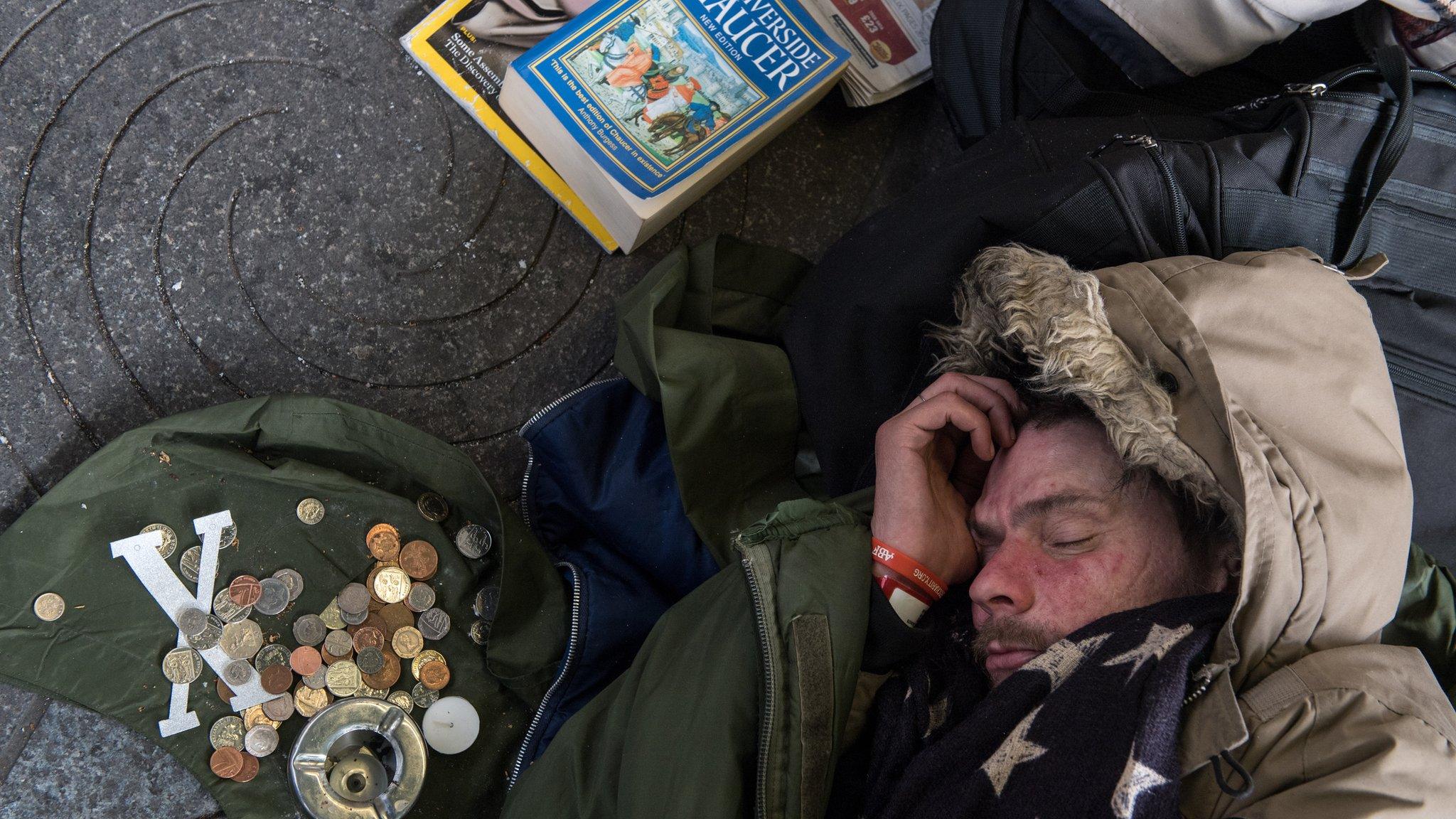Rough sleeping centres 'to help 6,000'
- Published
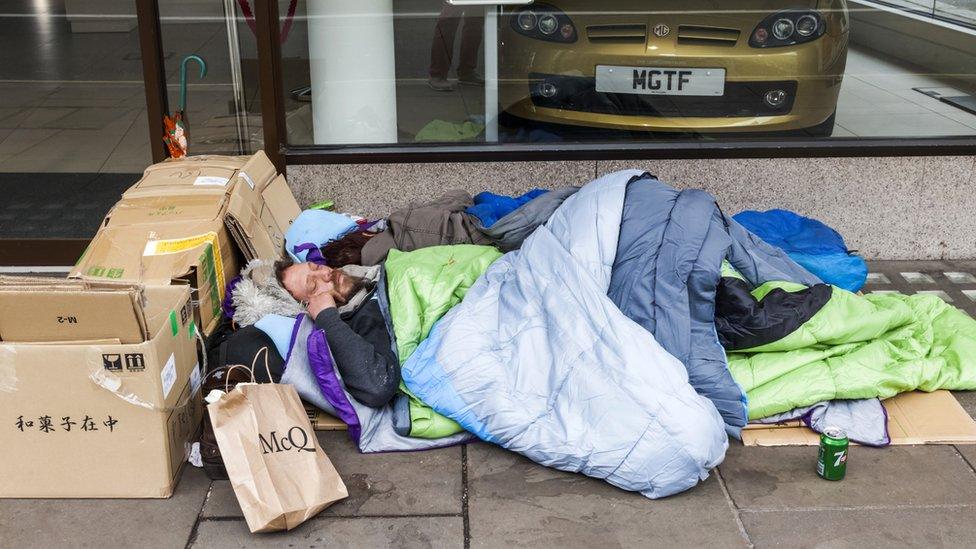
A total of 15 rough sleeping hubs will be created by 2020, the government said
New centres aimed at taking rough sleepers off the streets will be set up in 15 locations across England.
The £4.8m government project will see 11 shelters open by spring 2019.
Homeless charities welcomed the "significant step" but called on the government to do more.
The hubs will open in Brighton and Hove, Bristol, Cheshire West and Chester, Derby, Gloucestershire, Lincoln, Liverpool, Medway, Nottingham City, Preston and West London.
They will provide immediate shelter and support as part of the government's £100m rough sleeping strategy.
A further four centres will be created later next year and an estimated 6,000 people are expected to receive support through all 15 hubs by 2020.
Seven homelessness charities - Crisis, Homeless Link, National Housing Federation, Shelter, St Basils, St Mungo's and Thames Reach - advised ministers on the strategy.
They said in a joint statement it was "a significant step towards the government's goal of ending rough sleeping by 2027".
But they added that ministers "must also set out bold, cross-departmental plans to tackle the root causes of all forms of homelessness and prevent it from happening in the first place".
Shadow housing secretary John Healey said: "Rough sleeping has risen every year since 2010 as a direct result of decisions made by Conservative ministers and the problem is getting worse."
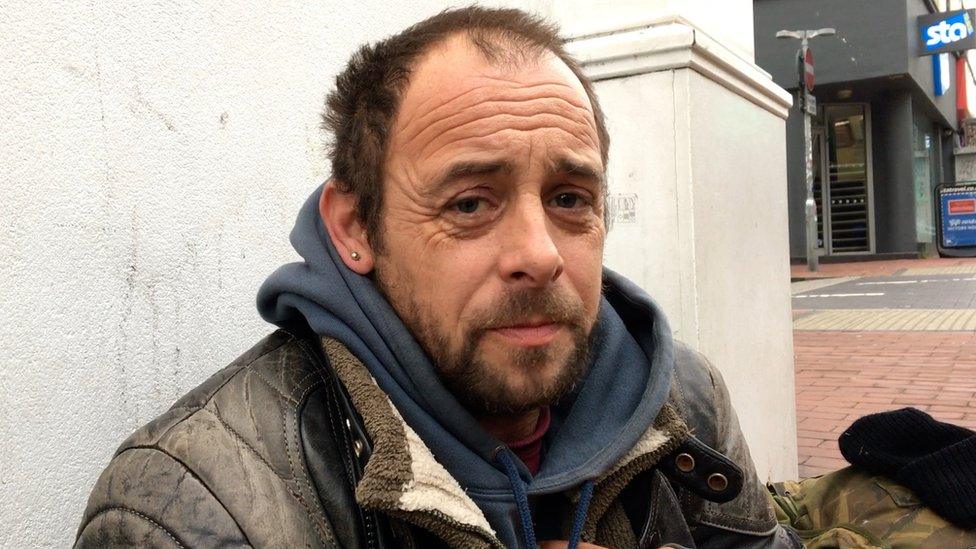
Lee Taylor, who sleeps rough in Brighton, does not think the hubs will work
Lee Taylor, who has lived on the streets across England and been in Brighton for two months, does not think the hubs will work.
"I don't want to be in those centres because there are a lot of people that don't want to help themselves," he said.
"It deters some of the decent ones, some of the ones who are trying to help themselves, from going in there.
"They won't want to be around the undesirables. It would cost too much money to be able to separate drinkers from the non-drinkers. And how do you work out who wants to do this and do that? You can't. It won't work."

How many people are sleeping rough?
There were 4,751 people counted or estimated to be bedding down outside in autumn 2017, a 15% rise on the year before and more than double the figure recorded five years earlier.
However, St Mungo's warns that the annual count is only a one-night snapshot.
Its own database records each individual over a longer period. It showed 3,103 rough sleepers found in London alone between July and September 2018, 20% up on the previous three months.

Gaby Smith, spokeswoman at Medway Help for Homeless, said the plans were "too little too late" as the rise in rough sleepers would likely outstrip the projected 6,000 people set to receive support.
"It's also unacceptable that these hubs will not come into operation until the spring, as it is during the winter that they are most urgently required, so yet again thousands will be sleeping rough this Christmas without help."
But Howard Doe, Medway Council's housing portfolio holder, said it was "fantastic news".
The new Somewhere Safe to Stay centre will house five rough sleepers at a time and provide food, a hot shower and a change of clothes, he said.
"Once the centre is open, we aim to be able to help rough sleepers within 72 hours of them being referred to us," he added.
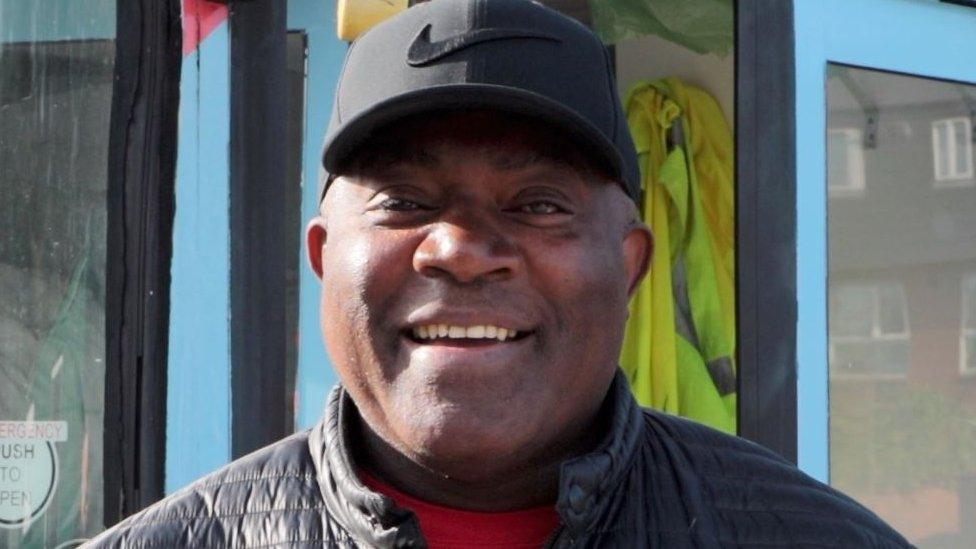
Jasper Thompson converted shipping containers into apartments for homeless people in Bristol
Jasper Thompson, founder of Help Bristol's Homeless, said: "I wouldn't like to see the reaction of some of the more chaotic homeless people if that hub is put in central Bristol.
"You can't do one size fits all. Lumping everyone in together in one place will be an issue."
But Communities Secretary James Brokenshire said: "These vital new hubs will ensure those on the streets have access to professional help and guidance to start their recovery."
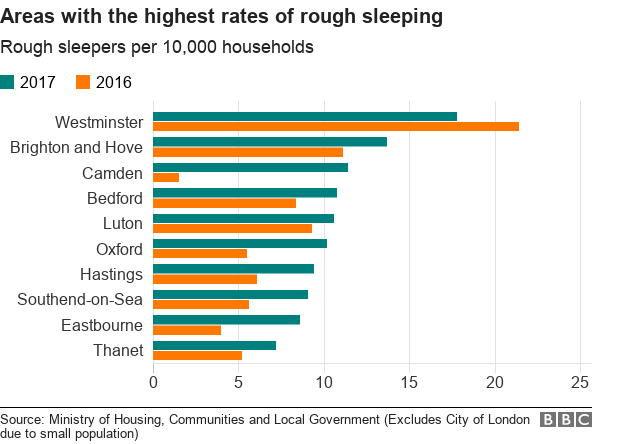
Meanwhile, Labour announced a plan for a levy on second homes to raise £100m for emergency winter shelters for when temperatures drop below freezing.
Under Labour's plan, second properties in England used as holiday homes would be subject to an average tax bill of over £3,200.
It said the money would also pay for staff to help rough sleepers get health and housing support to keep them off the streets for good.
- Published13 August 2018
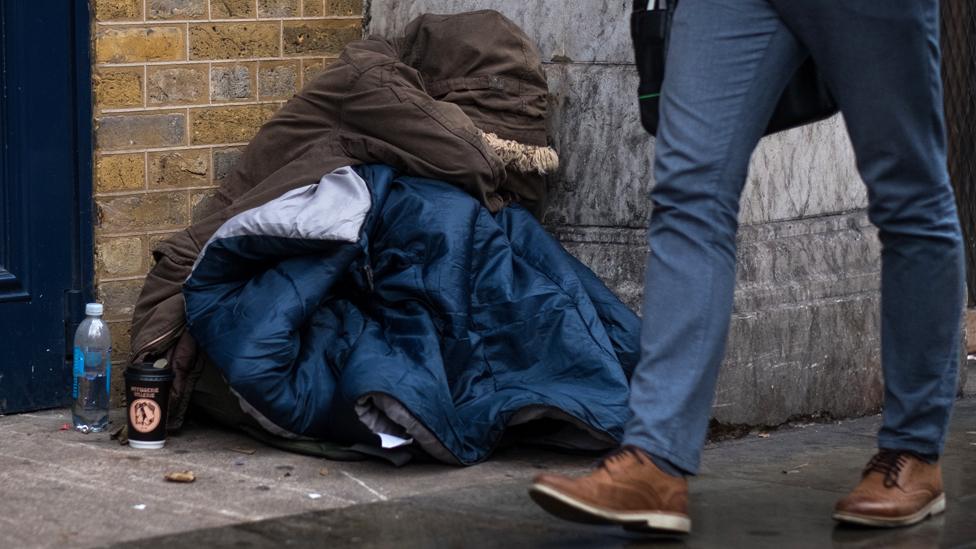
- Published22 November 2018
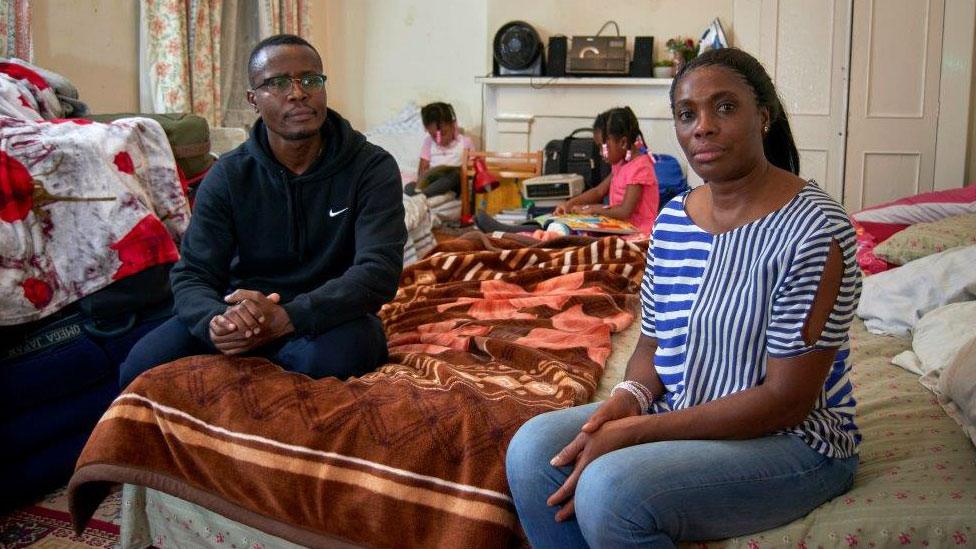
- Published25 January 2018
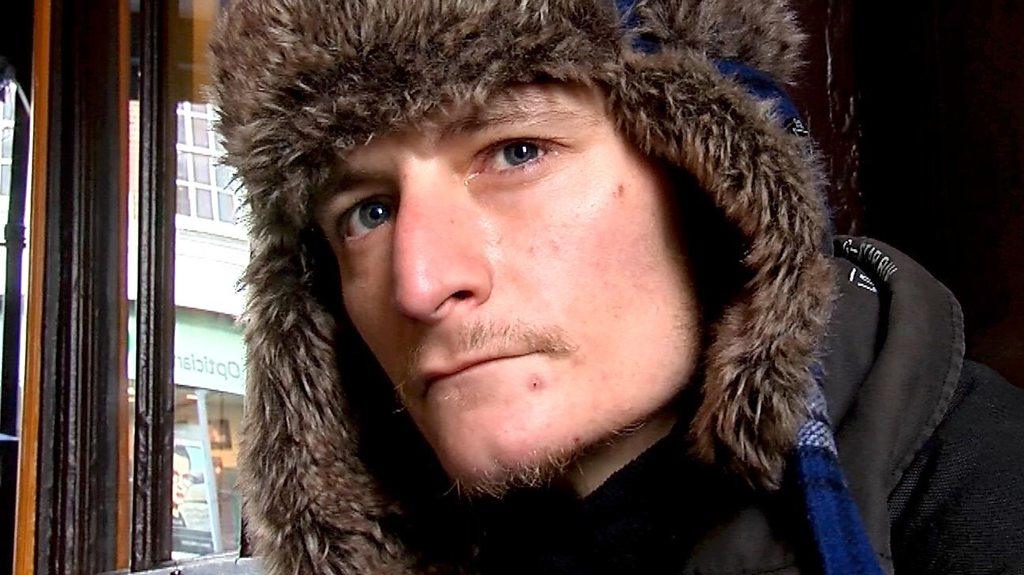
- Published25 January 2018
